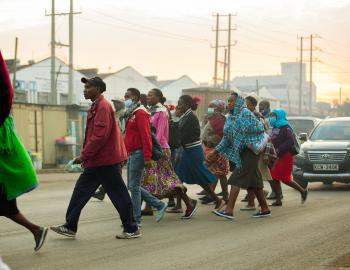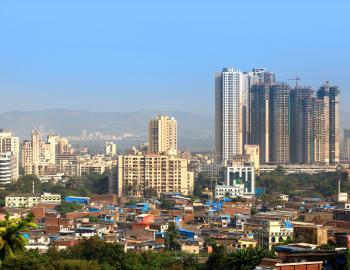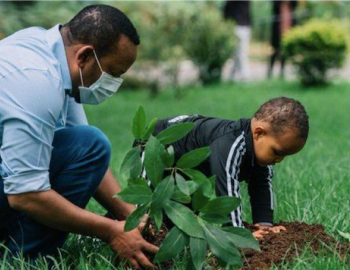WORKING PAPER: Climate compatible development in the ‘Land of a Thousand Hills’ - Lessons from Rwanda
WORKING PAPER: Climate compatible development in the ‘Land of a Thousand Hills’ - Lessons from Rwanda
In the last decade, Rwanda has emerged as a leader in Africa for its efforts to integrate climate resilience and green growth into development planning and finance. A new working paper by CDKN charts some of the steps the Government of Rwanda has taken to become a leader in this area.
In Climate Compatible Development in the Land of a Thousand Hills: Lessons from Rwanda authors Debbie Caldwell, Jillian Dyszynski, and Rachel Roland find that:
- Strong alliances between the Ministry of Natural Resources – through the Rwanda Environment Management Authority – and the Ministry of Finance and Economic Planning have enabled many achievements in climate compatible development to date.
- Rwanda has a number of innovative solutions to share with the region, including establishing a demand-based Environment and Climate Change Fund (FONERWA) and introducing tools for mainstreaming environment and climate change issues into budgeting and planning systems at both national and subnational levels.
- After two years of operation, FONERWA has made considerable progress, including mobilising approximately US$44 million in capitalisation commitments, receiving over 1,000 eligible proposals, holding seven public calls for proposals and partnering with the Rwanda Development Bank to provide a credit line to qualifying private sector applicants.
The working paper is a product of a study in 2013-14 on “Lesson Learning from National Climate Compatible Development Planning”. The governments of Rwanda, Ethiopia, Kenya and Mozambique participated in the study, which aimed to capture and share institutional memory and experiences related to climate compatible development, and reflect on recommendations to support future decisions. The study was funded by CDKN and facilitated by the Centre for International Development and Training (CIDT) at the University of Wolverhampton.
Rwanda’s national learning study involved a literature review and semi-structured interview and questionnaire process with more than 30 stakeholders. A stakeholder workshop was held in Kigali, Rwanda, in February 2014 to validate the key lessons and results. Discussions explored key drivers, challenges, opportunities and lessons that could be shared within Rwanda and with other interested countries. The working paper highlights some of the conclusions on how governance, institutional arrangements, laws and policies, planning, financing and knowledge sharing can all support more climate-compatible development.
Image: Rwandan hills, courtesy CIAT.



